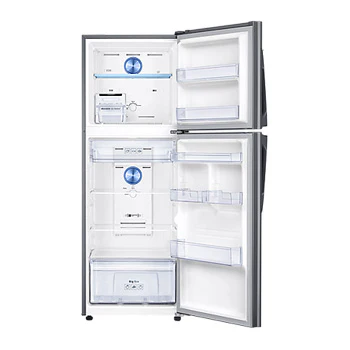When it comes to keeping your food frozen and preserving its quality, the performance of your freezer is paramount. Many homeowners choose Samsung freezers for their reliability and advanced features. However, like any appliance, understanding how to optimize its performance can make a significant difference. In this post from TheKitchenApplianceDad.com, we’ll explore how to make a Samsung freezer colder, ensuring it functions at its best.
Adjusting the Temperature Setting:
Most Samsung freezers come with an electronic control panel. To make your freezer colder, you generally need to adjust the temperature settings. Here’s how you can do it:
Note: It can take up to 24 hours for the temperature change to stabilize throughout the freezer.

Avoid Overpacking: Overloading your freezer can block air vents, restricting airflow and leading to uneven cooling. To avoid this:
Properly Seal Foods: Poorly sealed items can increase the moisture level inside the freezer, which can affect the internal temperature. Use airtight containers or freezer-safe wraps to ensure foods are sealed properly.
Defrost Regularly: Ice buildup can insulate the walls of the freezer and reduce its cooling efficiency. If your Samsung freezer is not a frost-free model, regular defrosting is necessary. Here’s how to do it safely:
Check the Door Seal: The door seal or gasket is crucial for maintaining the correct temperature. Check it regularly for any wear or gaps that could let cold air escape. If the seal is damaged, consider replacing it.
Clean the Condenser Coils: Dust and debris on the condenser coils can hinder their ability to dissipate heat, making your freezer work harder and less efficiently. Cleaning the coils every six months can improve performance. Use a vacuum or a brush for cleaning.
If your Samsung freezer is old and no longer performs as expected even after trying all the above tips, it might be time to consider an upgrade. Newer models are more energy-efficient and come with better features that ensure optimal freezing.
Many newer Samsung freezers are equipped with smart features that can help maintain the ideal temperature and alert you if there’s a problem. For example, some models connect to the Samsung SmartThings app which allows you to monitor and control the temperature from your smartphone.
By following these simple steps, you can make your Samsung freezer colder and ensure it is running efficiently. Not only will this help in keeping your food safely frozen, but it can also extend the life of your appliance and possibly reduce your energy bills. Remember, regular maintenance is the key to any appliance’s longevity and performance.

